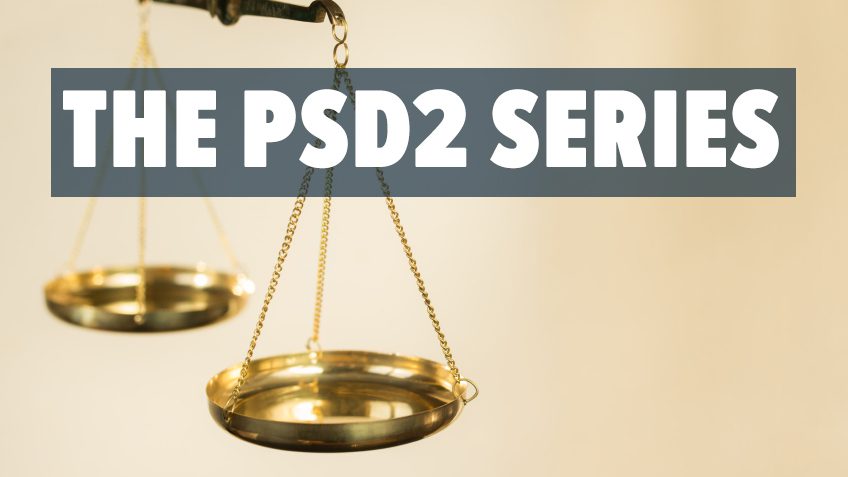

With the PSD2 compliance deadline having just passed, in this series we speak to some of the relevant firms both in and out of the U.K. about what this means for them and how the industry should move forward. In this installment, we chat to Marten Nelson, VP Marketing at Token. Nelson demoed Token’s PsD2 compliant solution at FinovateEurope 2017 in London.
Finovate: According to Strategy&, 68% of bankers are worried PSD2 will cause them to lose control of the client interface. What’s your advice to these banks?
Nelson: Take your head out of the sand!
Banks need to recognize that their customers’ expectations have changed and it is this, not PSD2, that is the main driver for their loss of control. Banks’ customers have grown accustomed to a new kind of digitized customer experience. One that gives them power to choose and options to choose from. New value. Ultra-convenience. Security. The changing dynamics of the customer have given rise to PSD2, which is now forcing the banks to respond.
I understand banks’ reluctance. Banks are powerful, protective and risk averse. Change is risky. Until now, customers of banks have been loyal. Why would this change? And who would want to throw open their systems to third parties, so they can build apps and services that might pull their customers away?
The hard truth, however, is this: if banks do not respond, their customers will be pulled away anyway. And faster than they might think.
The real risk to banks lies in non-participation. Banks that seek to control or limit the interface through which they engage with other banks, service providers or customers, will fail.
Finovate: Will PSD2’s enhanced security requirements increase friction for end consumers?
Nelson: Perhaps in the short term, while the new model of open banking establishes, but the main point is that consumers will have so many more secure options for financial products and services that any teething problems will ultimately pale into insignificance.
The level of friction in the end-user experience will also depend on how smoothly banks’ APIs integrate, together with which security measures they choose to implement to enable transaction authorisations.
Joining forces behind a common open banking platform – one that is easy, secure, interoperable, low cost and developer friendly, will enable banks to deliver the variety and freedom of services that their customers demand. Currently, TokenOS is the only solution that provides one interface to access all banks in the EU for both payments and data.
Finovate: How do you suggest banks and fintechs communicate about PSD2 to consumers who are scared to share their data because of privacy issues?
Nelson: Consumers do not (and will not) care about PSD2. They will care about what it enables, i.e. being able to access new products and services securely and linking them to their bank account. So, banks and fintechs should not communicate using industry jargon, they should talk in terms of new opportunities, services, facilities and benefits. Everything leads back to how they can meet the customer’s new expectations.
From a security perspective, consumers will want to be reassured that their data is safe.
Finovate: The benefits of PSD2 to fintechs are obvious. How can banks make sure they’re benefitting, as well?
Nelson: Banks that support new apps and services arising from PSD2 will benefit from their kudos, and retain customers and attract new ones as a direct result.
The key for banks lies in their support for developers. A truly open ecosystem will run on one or two APIs and support maximum third party integration.
Competitive forces prevent any bank from establishing its own API as the de-facto choice for all.
Those that try will not recruit enough developers to deliver the depth and variety of third-party services that will meet customer demand and enable them to differentiate in the market.
A single API ecosystem will attract the most developers. More developers means more innovation and more exciting and attractive financial apps and services.
History speaks (again): If there were as many operating systems as there are personal computers or smartphone manufacturers, it would be cost prohibitive for developers to build apps. That’s why there are two platforms each for PCs and mobile devices, because that is the maximum number the developer market can sustain.
Finovate: Should banks be worried that, by opening their APIs to third parties, they risk increased security vulnerabilities?
Nelson: Banks that are working with trusted software providers shouldn’t be. The key here is in adopting an open banking platform that delivers a secure ecosystem and a developer-centric approach. Uniquely, Token combines tokenization and cryptography to make transactions virtually impossible to hack, since the data transmitted between the transacting parties is meaningless to everyone else.
We also use programmable money and an open API. As a result, developers can connect securely to banks to initiate payments or access information. The programmable money element then provides support for a sea of other use cases that can benefit the bank. Since money and information always are combined, reconciling payments, for example, is a breeze. Also, payments are instant between banks on the Token network.

